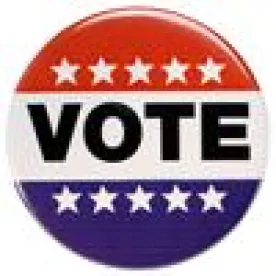On June 3, 2015 editorial employees at Gawker Media (“Gawker”) voted to be represented by the Writers Guild of America, East (“the Union”). In this closely watched organizing drive, employees of a leading “new media” outlet, chose an old line print journalism union to bargain with their employer, becoming one of the first (if not the first) digital media outlets to unionize. This follows on the heels of increased union organizing and pressure in the technology field and organized labor’s Silicon Valley Rising campaign. Interestingly, the election was not conducted by the NLRB but through VoteNet, which Gawker’s own reporting described as “an independent online voting system.”
Gawker officially remained neutral during the campaign, and permitted its editorial staff to publish internal discussions regarding unionization on the company’s consumer facing website. Hamilton Nolan, the writer who spearheaded the organizing drive published an article titled Why We’ve Decided to Organize in which he argued “every workplace could use a union.” After the date of the election was announced, Gawker created a page for employees to discuss the upcoming election. Of the 118 writers eligible to vote, 75 voted in favor of representation and 27 voted against.
The public online discussion among the employees preceding the vote offers interesting insights into union organizing activity in the new media industry. It appears that the primary arguments by those supporting representation was not to push for an immediate improvements in salary and benefits. Rather, union supporters argued that representation would help them preserve and maintain their existing compensation in the event of future downturns. Others expressed the view that pay practices would become more transparent with a union. Opponents argued that the status quo was satisfactory and that bringing an old line union like the Writers Guild into the company would hurt the company’s culture. Opponents also complained of a hurried election process where their concerns were marginalized or shouted down.
In an interview on CNBC’s Squawk Alley following the vote, Gawker Founder and CEO, Nick Denton said that the writers “…have made it clear both to the management and to the union that they like the way they work and none of that is going to change,” echoing his prior sentiments that he was “pleased Gawker is leading the movement in the online media world toward collaboration and inclusion.” Only time will tell as to how the introduction of the Union will impact the Gawker workplace both on a short and long term basis.
Key takeaways for employers:
-
The technology, media and telecommunications industry remains an important target for organized labor. Indeed, while perhaps counterintuitive, the new crowd of hip, highly educated innovators and creative-types may prove to be fertile ground for more traditional organizing efforts
-
Even highly skilled and well compensated workers can be vulnerable to union organizing. Employers’ efforts to maintain non-union status should be carefully tailored to address employee concerns and unique circumstances on a case by case basis.
-
Employer educational efforts remain a critical tool for helping to educate employees about the downsides of representation.




 />i
/>i
